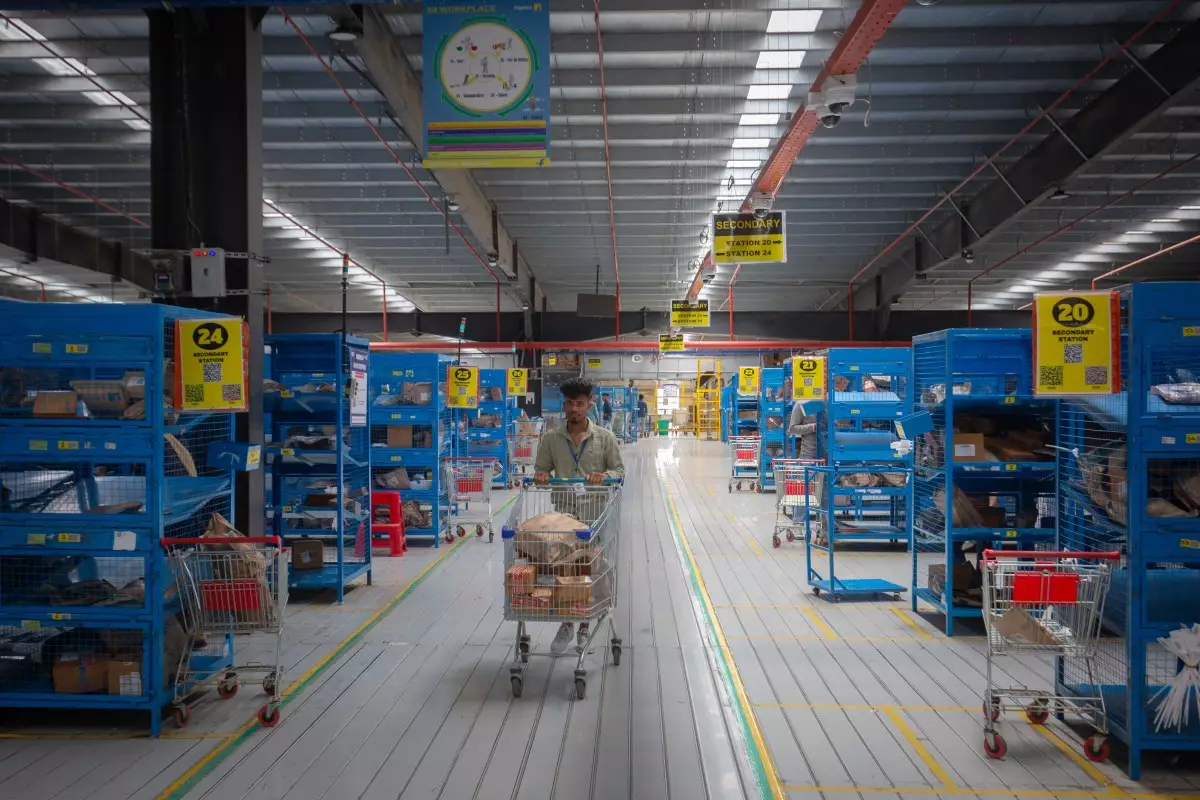In an innovative leap towards meeting the evolving demands of the modern consumer, Myntra, an industry titan in India’s fashion e-commerce, is currently testing a groundbreaking four-hour delivery service. This project is being piloted in key urban centers such as Bengaluru and New Delhi, as the company seeks to adapt to the changing landscape of consumer behavior shaped by the meteoric rise of quick commerce. Unlike its standard delivery methods, which typically require two to three days, this service represents a significant push into expedited logistics aimed at enhancing customer satisfaction and retention.
The move to implement faster delivery capabilities stems from a broader trend in India, where several startups focused on quick commerce are making substantial inroads by offering delivery times as short as ten to fifteen minutes. With Myntra’s ambitions to broaden its delivery spectrum, this trial is a calculated response to these market shifts, as well as a strategic alignment with consumer expectations. Increased competition has compelled major players like Myntra to act decisively, driving the evolution of the delivery landscape in e-commerce.
Reports indicate that Myntra plans to expand this rapid delivery service into various other cities by year-end, fundamentally altering its operational paradigm. What sets this initiative apart is the company’s acknowledgment of consumer behavior; an internal assessment reveals that shorter delivery times significantly enhance customers’ willingness to finalize their purchases. By leveraging data to inform decision-making, Myntra is positioning itself to capitalize on the immediate needs of its customer base.
Despite the excitement surrounding faster delivery services, the challenge of managing returns in the fashion sector looms large. Historically, the fashion category has been plagued by high return rates, with customers often unhappy with fit, style, or color discrepancies. Recognizing the potential pitfalls, Myntra is initiating this trial with a more condensed selection of items, allowing for a smoother logistics process while still testing the waters of rapid delivery.
Moreover, Myntra’s trial approach echoes the wider ambitions of its parent company, Flipkart. The touches of innovation seen in Myntra’s practices are part of Flipkart’s nuanced strategy in the competitive e-commerce environment. While Flipkart has mounted its response to the quick commerce wave, its main rival, Amazon, has yet to dive into this fast-paced delivery race, creating an intriguing dynamic in the e-commerce landscape that is ripe for analysis and development.
The implications of the rise of quick commerce extend far beyond Myntra. The burgeoning segment has already begun reshaping consumer expectations, with companies like Zomato-owned BlinkIt, Tata’s BB Now, and Swiggy’s Instamart capturing market share with their rapid service offerings. Together, these entities have reached an annualized run rate exceeding $6 billion in gross merchandise value (GMV), reflecting a monumental growth trajectory from the previous year’s figures.
Most importantly, analysts are increasingly speculating that quick commerce could disrupt conventional e-commerce practices across India. With e-commerce sales estimated at approximately $50 billion last year, the emergent themes of convenience and speed threaten to redefine competition among existing and emerging players. A steep adoption curve is anticipated; for instance, Zepto has projected an impressive 150% growth in the coming year, indicating the depth of consumer interest in expedited commerce.
Myntra’s foray into four-hour delivery service is not just a logistical upgrade but a fundamental recalibration of the e-commerce model in India. As the demand for speed continues to rise, so too do the challenges associated with delivery logistics, returns, and customer satisfaction. Myntra’s proactive adjustments signal a notable shift in the way fashion and e-commerce are perceived and consumed in India, marking the dawn of a new phase in retail that prioritizes immediacy as much as it does variety. As Myntra navigates this uncharted territory, the landscape of Indian e-commerce awaits with bated breath, optimistic yet wary of the unprecedented changes on the horizon.

